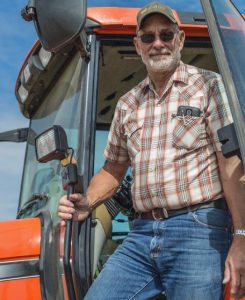Spring is an exercise in patience for farmers and it’s a virtue Jasper County Iowa farmer Roger Zylstra has practiced for many years. He’s glad he was introduced to no-till in the ’60s when his father led the operation, as it keeps him from being overly anxious about getting into the fields in the spring.

“Last fall was a reminder that no-till is the way to go if you want to keep the soil in place and improve its structure to support machinery,” he said in regard to the long, drawn-out harvest. “I’m thankful our fields don’t have big ruts to repair this spring.”
Zylstra says farmers in his area might be getting nervous because it was too wet in the fall for tillage and nitrogen applications. He recognizes that every farm operation is different, but he has had longtime success keeping yields trending higher in his no-till system.
“If you are in a situation where you’re sinking into the tilled soil, consider trying some no-till acres and see how it improves water infiltration,” said Zylstra. “It’s not that hard to get started with no-till.”
One challenge he is trying to figure out is improving the growth of his cover crops, because they add organic matter to the soil, help to firm the ground for the manure that’s injected in the fall and keep nutrients from going downstream. Because of the delayed harvest, his cover crop got seeded later than he liked, but had started to green up in early April. “I know it will grow fast if the weather is favorable and provide soil health benefits,” he said.
While he waits for soil conditions to improve, he is thinking about how he can refine his nutrient plan for the growing season. “It’s important to get this right for the soil and water. And with profit margins tight, I’m looking for ways to save money,” he said. “We are paying more attention to micronutrients and managing fertility for yield. This approach is working because we’re happy with our yields.”
Zylstra wishes he had paid more attention to nutrient management earlier in his farming career. “I could have saved a lot of money if I had started soil testing sooner,” he said. “Managing fertility for grain weight is a lot more important than trying to build high nutrient levels on whole fields. We will continue to try different things to feed the plant without breaking the bank and without putting anything harmful on the fields.”
Click here to ask Roger a question about his farming operation.
